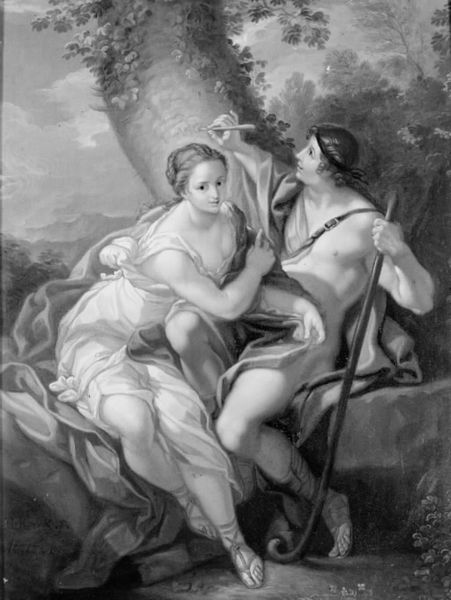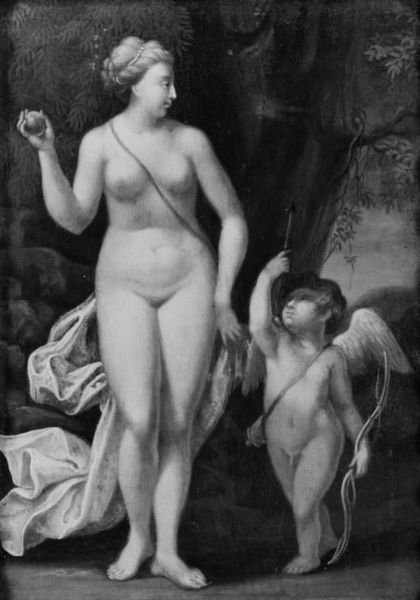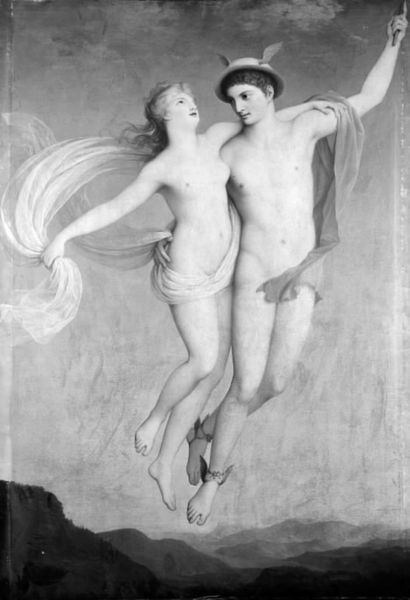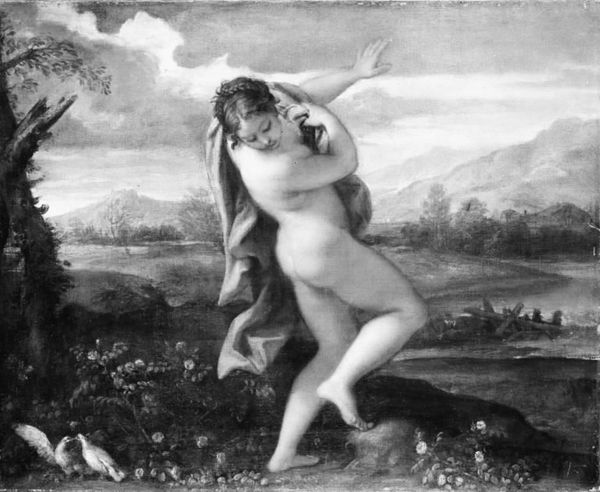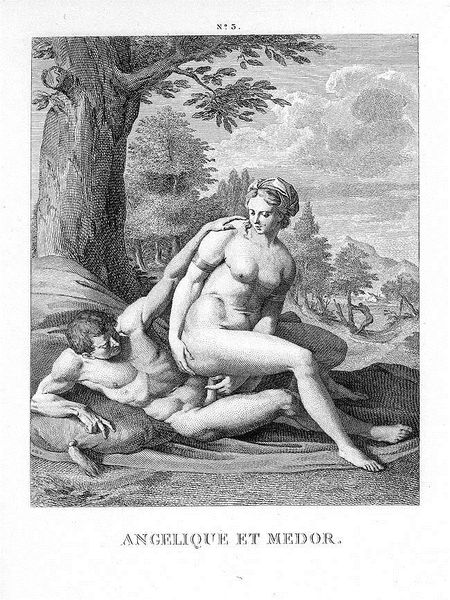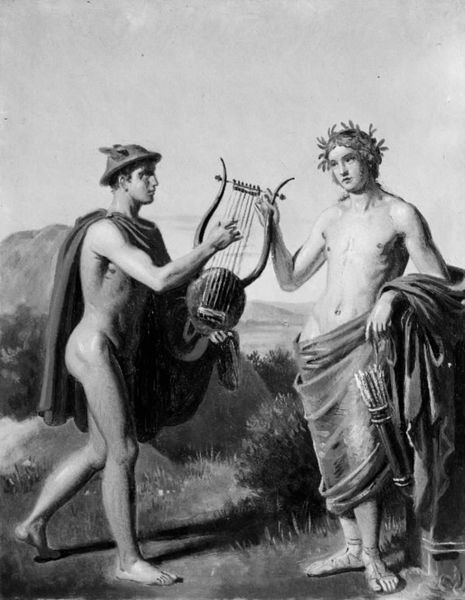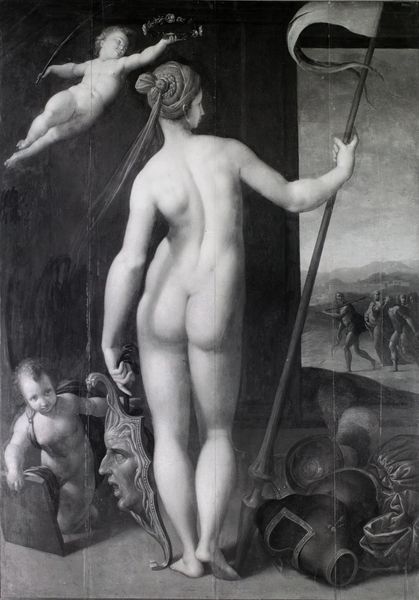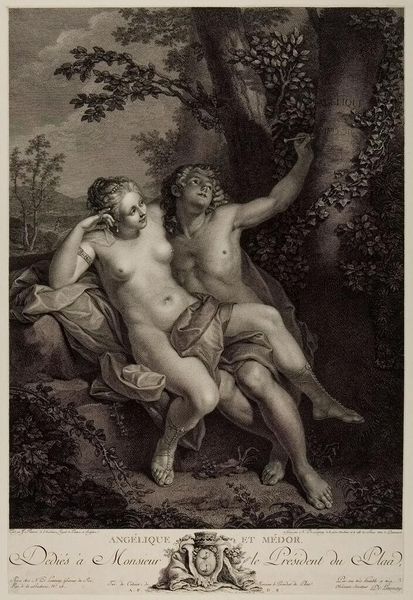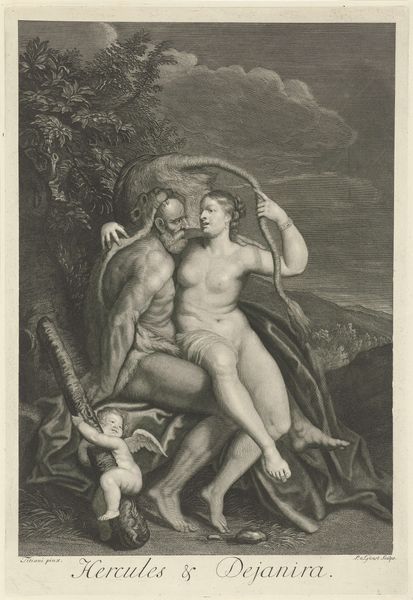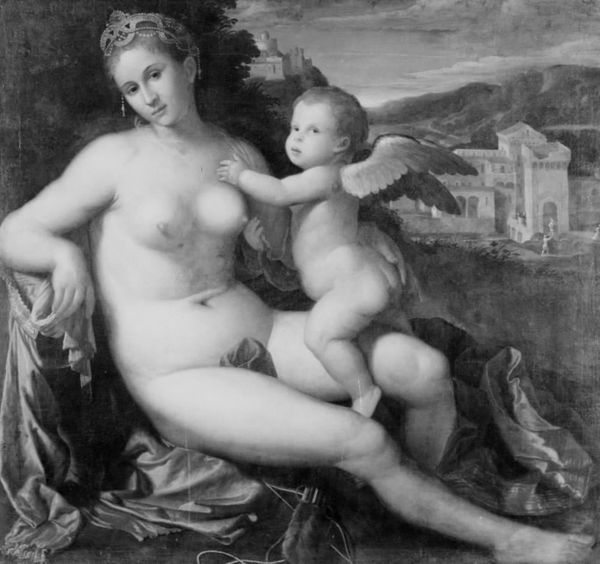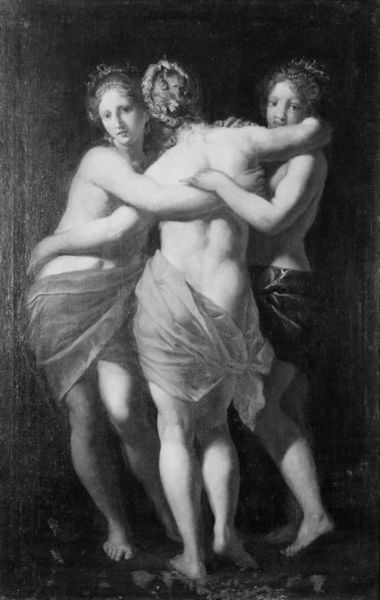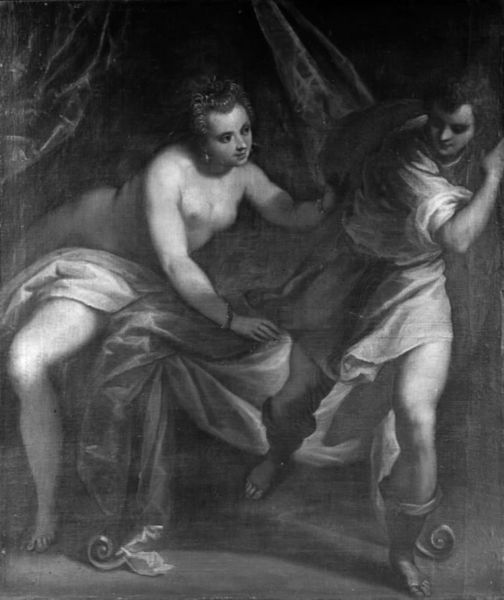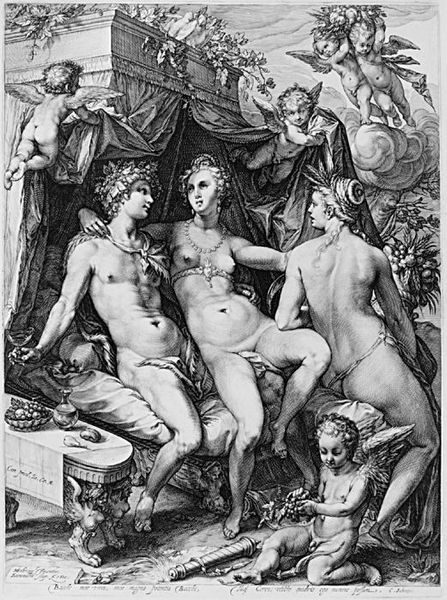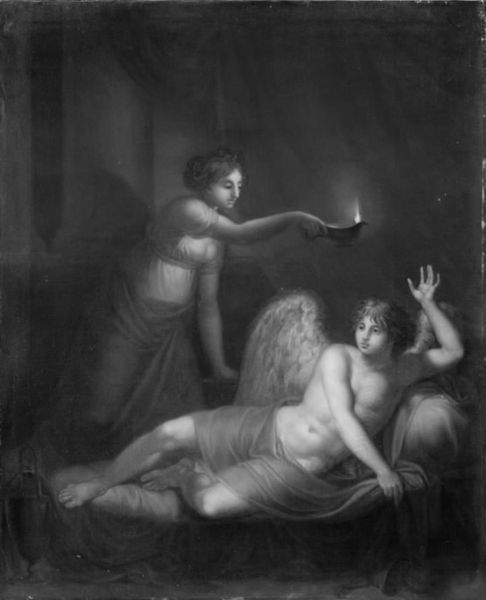
painting, oil-paint
#
neoclacissism
#
allegory
#
painting
#
oil-paint
#
classical-realism
#
history-painting
#
monochrome
#
nude
#
monochrome
Dimensions: 247.5 cm (height) x 173.5 cm (width) (Netto)
Editor: This is Erik Pauelsen's "Merkur overtaler Psyke til at følge ham til guderne," or "Mercury Persuading Psyche to Follow Him to the Gods," painted in 1782 using oil paint. The muted tones create an ethereal feel. I am immediately drawn to the figures' poses – what strikes you most about this composition? Curator: Primarily, the painting’s formal qualities reveal a careful consideration of line and form. The stark, almost monochromatic palette, facilitates an intense focus on the idealized figures. Pauelsen orchestrates a neoclassical vision using calculated contrasts between light and shadow. Note the deliberate placement of the caduceus, and how it redirects our eye to Psyche. Observe how that verticality is offset by her hesitant posture and the billowing fabric, which seems almost to resist forward momentum. What effect is created? Editor: It sets a visual tension, doesn’t it? Like a silent debate between the desire for ascension and the pull of earthly bonds. So, is the key to understanding this painting in analyzing those formal relationships and contrasts? Curator: Precisely. We must see how Pauelsen translates these narrative elements into purely visual constructs. For example, the relationship between Mercury's firm, raised arm and Psyche's hesitant stance underscores the thematic tension—without resorting to excessive narrative detail. It allows the viewer to engage directly with the underlying structural concerns of the work. It is more about their structure than storytelling. Editor: That’s a compelling point. Seeing it in terms of structural elements, instead of a literal representation. That really alters my understanding. Curator: Yes, and from understanding line, composition and subject through shape alone can allow one to more properly and efficiently "read" and "decode" works of art through pure visuality. It’s an excellent framework that provides for rewarding experiences viewing paintings such as this one.
Comments
No comments
Be the first to comment and join the conversation on the ultimate creative platform.
